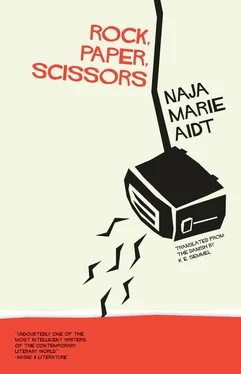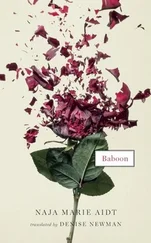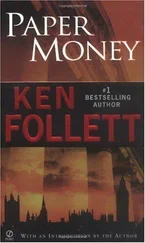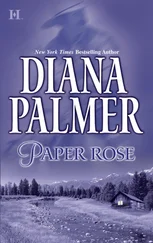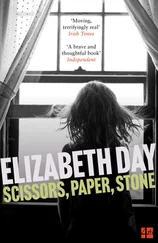“What does it look like, the thing they carved?” Peter asks.
Kagoshima says, “It looks almost like. . like a sun with four rays. Four lines radiating from a circle.”
“A sun?” Annie mumbles.
“Something like that,” Kagoshima says, stepping over the doorframe.
“What if it’s a warning?” Peter says, horrified. “The symbol in the countertop?”
“Let’s not go there,” Annie says softly.
“The symbol in the countertop! It sounds like the title of some ridiculous B-film! Who the hell would warn us, and against what?” Maloney’s agitated again. “A sun? That’s ridiculous ! I’m going home now to sleep. I can’t deal with this anymore.”
“We need to board up the windows when they’re done. C’mon. Let’s go have a beer.” Thomas grabs Maloney’s arm. Maloney snarls like a dog and tries to yank his arm free. Thomas gets Peter’s attention. He says, “You can go home. You too, Annie. We’ll call you later. Annie nods and retrieves her purse from the sidewalk. Peter lifts his hand in a sad farewell. Stooping, walking slowly, they head up the street. “Now let’s go get a beer,” Thomas repeats. “Once they’re done we’ll board it up. Okay?”
Maloney doesn’t respond. But he goes willingly with Thomas, across the street and into the café, where they sit in their usual corner. Thomas orders two large draft beers. The café’s owner wants to know everything about what happened. He gesticulates in disbelief, he shakes his head with regret, he points out the window, he talks up a storm about how unacceptable this is, such a nice-looking store, everything’s getting worse and worse, he says, like in the old days, worse and worse, soon you won’t even be able to trust your best friend. Still shaking his head, he finally returns to the bar, after having assured Thomas and Maloney more than once that everything’s on the house today. Shortly after that they see Palvino calling on the neighboring businesses. And then it appears that the reinforcements arrive: two plain-clothes officers climb out of a green Mazda and shake Kagoshima’s hand. Maloney and Thomas say almost nothing, apart from arguing about whether or not they should have a contractor board it up, or whether they should do it themselves and use some of the old boards they have in the back. Maloney absolutely doesn’t want them to do it themselves. They agree to do it themselves. The café owner brings them whiskey and more beer. Maloney stares at the store and says, almost grief-stricken: “Now they’re searching for blood in there. They’re searching for blood in our store, Thomas.” But Thomas is distracted and only half-listening. He texts Patricia several times. She doesn’t respond. Peter, on the other hand, sends him a text: “I looked up the sun drawing. It’s apparently the generic sign for currency, that is, for money.” “The what?” Maloney says. “Tell him to knock it off!”
Late in the afternoon, Thomas bikes through the city with two striped towels flapping in a bag on the handlebar. To the west, the sky shines like mother-of-pearl: light-blue with rose-pink and thin bands of yellow. He crosses the bridge with its view of the turbid water far below, rides through the apartment subdivisions on the other side of the river — where the highway cuts through everything like another kind of river, noisy and bright. And after another twenty minutes he arrives at the small beach, six hundred feet of sand and tufted grass. The water is dead calm, and clusters of jellyfish lap helplessly against the shore. The temperature is dropping now. The salty air clings to his nostrils. A flock of black-headed gulls skim the surface of the water with powerful wing strokes. Sitting on the damp sand, Thomas sighs. Then he lies down and closes his eyes. He thinks about the vandalized store. About Maloney angrily hammering boards to the door. About the conversation with the insurance company. He thinks: She’s not coming. Patricia’s not coming. And all at once he sees a vivid image of his father and himself, naked and entwined, his father old and bony, he a smooth-bodied young man looping around his father’s lean figure like a fat, greedy snake. Their genitals hang limply down their thighs: his father’s small and curved, his own firm and vigorous. His father slides his hand through Thomas’s hair, sniffing at his ear with pleasure, he puts his lips to Thomas’s cheek, he presses his mouth to Thomas’s skin in one long, parched kiss. They lie paired in the sand. There’s sand everywhere. And the sand begins to rise. It rises, and it covers them, buries them, buries this two-headed body and tugs it earthward, the ancient man and the youngling, the sand crashes down upon them like a heavy darkness, and Thomas feels the light disappearing, his father’s body growing cold and stiff as he clings to it, melting completely into it, as his mouth fills with crunchy sand that chokes him. He gasps and opens his eyes: There stands Patricia looking at him. She’s blocking the sun. She’s pulled a green beret down her forehead. Nothing friendly in her expression. They undress and wade, shivering, into the cool water. There’s seaweed and the pungent stench of rot, an even layer of stones along the shore, but farther out the bottom grows sandy, the water clear. Patricia is the first to dive under, and she returns to the surface with her dark hair clinging to her back. The subdued underwater sounds do wonders for Thomas. The images of his father vanish, his panic subsides. He skims along the bottom, where shoals of small fish dart past him, and his weightlessness is so invigorating that his cock stiffens. This, a moment’s freedom. He collects a large conch and puts it to Patricia’s ear. For a few moments, she listens in silence. Then she takes it from him and throws it as far away as she can. He grips her waist and draws her close. She lets him, but she’s limp, her arms slack. He clutches her hips. He feels her belly against his groin. He feels her breathing, feels her breasts squeezed flat against the upper ridge of his belly. Then she squirms free. Scowls at him. She plunges into the water and begins to swim out. He stays rooted in place. Farther up the coast, someone is beaching a rowboat. Orange buoys bob on the water, maybe they’re traps. And just like that, in one swift and surprising moment, he’s floating above this scene and indifferently observing himself. He’s swaying in the air, staring at the crown of his head, registering his receding hairline, watching Patricia slice through the water. Then just as suddenly he’s in his body again, and sound returns: the lapping of the water, the squawking seagulls. Patricia’s far away now. He thinks about clouds, about fire, about tropical heat, about a swarm of tiny insects crawling in the grass at twilight. Now she turns and swims back to shore. When she redirects to continue along the coast, he swims along. They glide silently beside one another. But Patricia’s a much better swimmer than he is, and she shoots through the water with perfect ease, always keeping several lengths ahead. They wrap themselves in their towels and sit for some time, while the sun sinks on the horizon. The sky glows blood-red, the water darkens, a wide, seductive gold road heading straight toward the setting sun. “Look,” Thomas says, pointing east, “here comes the moon.” He takes her hand. It’s wan and wrinkly from the water. The small, pale half-moons of her fingernails stand out clearly. “I love you,” he whispers. “Where were you last night?” She pulls her hand away. He wants to say more, but nothing comes to him. A light breeze brushes the grass. Behind them, a few older kids ride by on bicycles, with fishing poles and red plastic pails on their rear racks. The bikes clatter along the uneven path. Their voices are shrill and cheerful. Thomas gets to his feet and begins to dress. He shakes sand out of his socks and hikes his pants over his hips. Patricia buttons her jacket and pulls her beret onto her wet head. She climbs on her bike and rides off without a word.
Читать дальше
